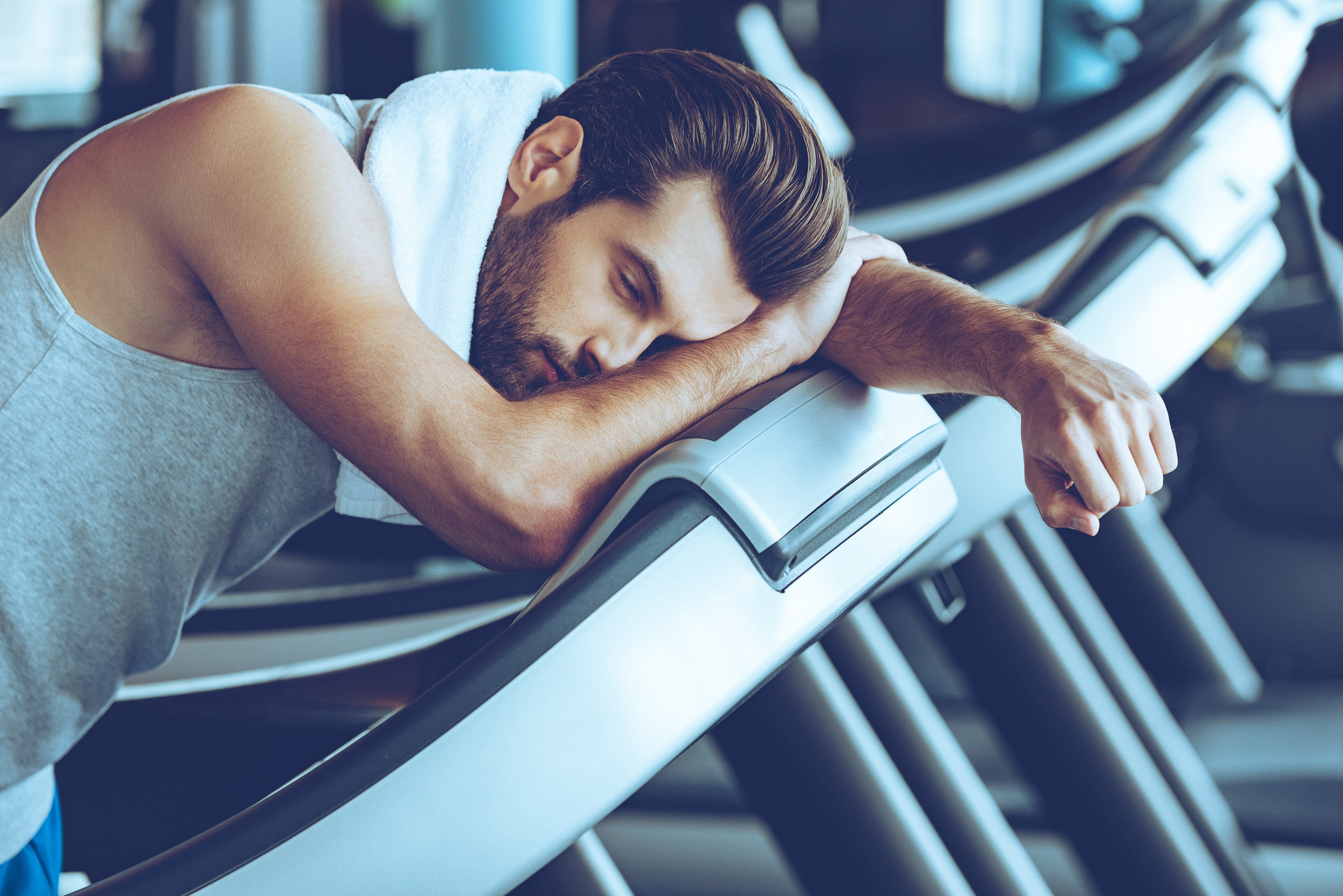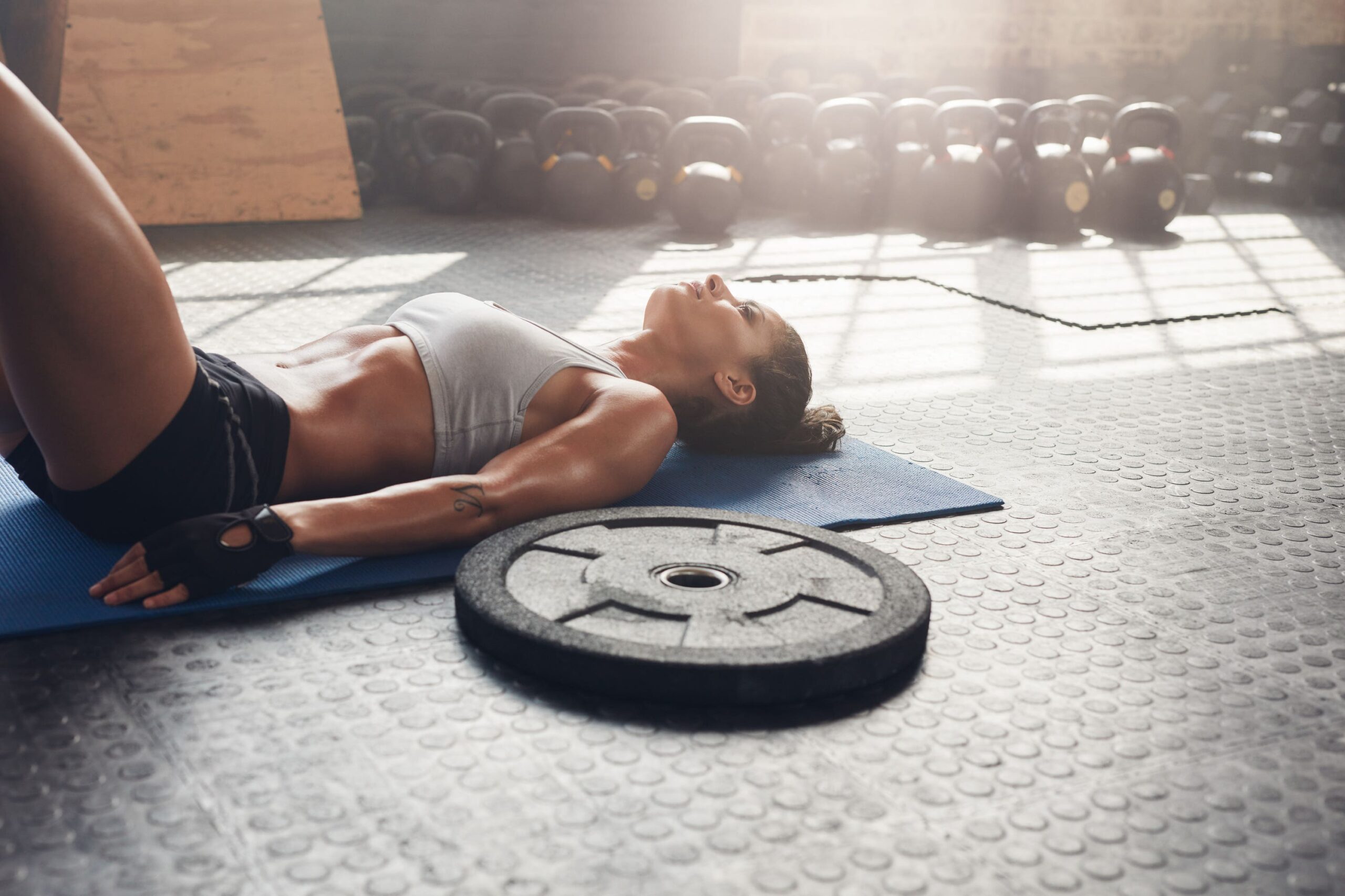Whether you’re suffering jet lag, you’ve worked a late shift or you just simply couldn’t nod off the night before, there’s nothing worse than feeling like you haven’t had enough sleep.
Everything feels more difficult when you’re tired, from simply getting out of bed in the morning to concentrating at work. But what do you do if you’ve got a workout scheduled and a training plan to stick to?
Is it better to power through a HIIT session, or is it safer to give in to the exhaustion and take a rest day? We put the question to Andy Vincent, an elite personal trainer from London gym Third Space. Here’s what he had to say…
“Usually, the clients I train miss the important sleep that is needed for recovery for two reasons: because they’ve either tried to squeeze a session into an already busy schedule, or they’re simply trying to train during a period of high stress. It’s a serious problem, and I often get asked whether it’s worth training when you’re feeling physically and mentally exhausted.
“Here are my six key signs that should tell you that you’re too fatigued to train.”
1. Your performance drops
“If you’re tracking any kind of performance-based marker such as maximum load, distances or watt outputs, you will be able to notice when your training efficiency is lowered. A single session with a lowered output isn’t a problem, but consistently underperforming is a warning sign that you’re not recovering enough.”
2. You have more than three poor night’s sleep in a row
“Parents with young children who like to keep fit will know that a lack of sleep can seriously hinder your performance. If you’re not sleeping well, for whatever reason, you probably need to consider if training is worth it. Your body may well benefit more from rest and recovery until your sleep pattern is back on track.”
3. You keep getting ill or picking up injuries
“If you can’t fight off a cough or cold, and you keep getting small, nagging injuries that don’t seem to go away, it may be time to bolster your immunity by taking a well-earned rest.”
4. You’re sore for long periods after training
“Still feeling the effects of that leg session, four days later? Muscles recover when you’re resting, so if you’re not able to recover properly, you will usually feel achy for longer than usual.”

5. You need to use excessive stimulants to get you through training
“Caffeine is the most researched supplement when it comes to its effect on training. However, you shouldn’t have to rely on excessive amounts of caffeine just to get you through a session.”
6. You aren’t seeing results
“You’re eating right and training as hard as you can, yet your body shape is staying the same. There is only so much stress the human body can handle, and it can often be more beneficial to spend a few days recovering so you can head back into the gym with more energy and a clearer mind.
“The bottom line is that training needs to be high quality to yield the optimum results, which you will struggle to do when exhausted. Within training, I always remind my clients of the importance of the ‘SAID principle’, which asserts that the human body adapts specifically to imposed demands.
“Training is all about asking the body to adapt to certain stressors, be it placed on your muscle tissue or brain, to make muscles stronger and burn fat. When you are training at levels far below your capabilities, you’re not going to be able to make decent changes.
“There’s a big trend for high-intensity exercise at the moment – intensity being the measure of how much output we can generate, be it aerobically, anaerobically or with load on the bar in a strength setting. Training hard can often leave us feeling tired after a gym session, but don’t confuse training while feeling fatigued with training to fatigue.”
The smart way to train
“If you’re regularly feeling tired at the gym, you may need to adapt your training plan. Think of sleep and recovery as just as important as how hard you can train or how many sessions you can do. Program active recovery days when you just come in and do some soft tissue work on a foam roller, stretch and go for a swim or a long walk to get the blood flowing.
“It might be a good idea to invest in a fitness wearable that can track your sleep, so you can monitor how many hours you’re actually clocking per night. My other tip would be to track Heart Rate Variability (HRV), to monitor the variation in the time interval between heartbeats. This variation is controlled by the autonomic nervous system (ANS). It regulates, among other things, our heart rate, blood pressure, breathing and digestion.
“Higher variability is better, and indicates a well-recovered, calm state, whereas persistently low values of HRV indicate chronic stress. So, if your daily HRV measure indicates a stressed state, you can take that as a warning from your body that you should take a day off.
“Chest straps like the Polar H10 (£76.50, polar.com) are a good place to start. They can give you a daily HRV information directly to your preferred phone or tablet, so you can make your training more productive and schedule rest days when your body most needs it.”
